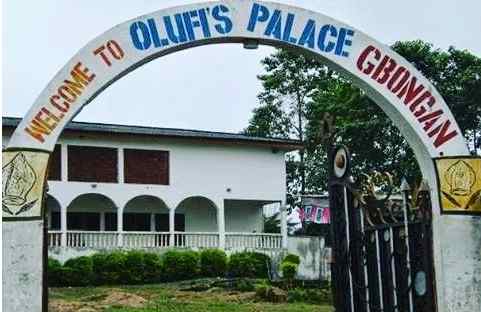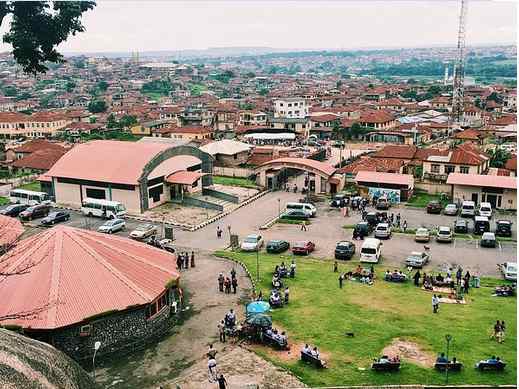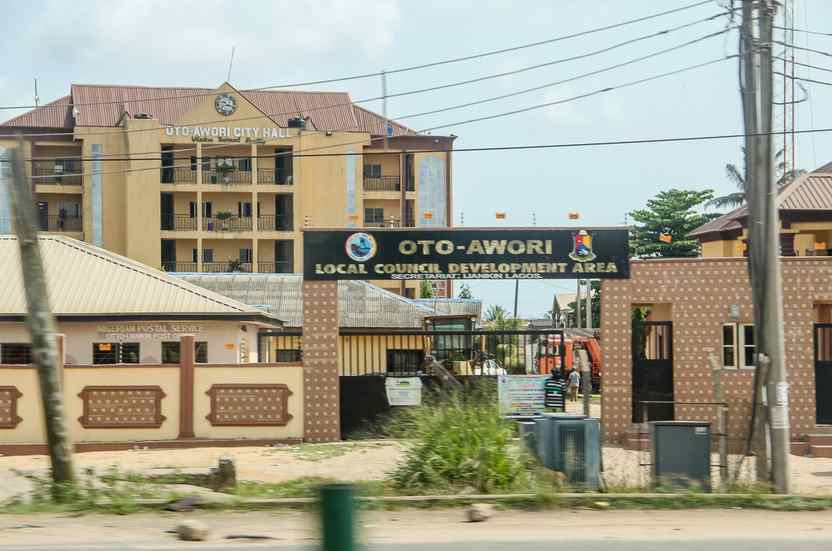
support@yorubalibrary.com
+2348073529208, 07038599574

Gbongan is a prominent Yoruba town located in Ayedaade Local Government Area of Osun State, Nigeria. Often referred to as one of the main crossroads of southwestern Nigeria, Gbongan is not only known for its strategic location but also for its cultural heritage, agricultural economy, and strong community identity.
Historically, Gbongan is believed to have been founded by hunters and farmers who migrated from Ile-Ife, the ancestral home of the Yoruba, in search of fertile land and safe settlement. Over the centuries, the town developed into an important trade hub, benefiting from its position along major routes linking Ibadan, Ife, Ilesa, and Osogbo.
The name “Gbongan” has been passed down through oral tradition, symbolizing a place where people gather. Its Oriki reflects the pride, bravery, and industrious spirit of its people—praising their hospitality, farming prowess, and leadership.
Location and Geography
Gbongan sits in the southwestern part of Osun State, bordered by towns such as Ode-Omu, Ikire, and Apomu. The town lies along the Ibadan–Ile-Ife expressway, making it a vital connection point for travelers and traders. The climate is tropical, with a long rainy season that supports year-round farming.
Cultural and Historical Significance
The town is traditionally ruled by the Olufi of Gbongan, who serves as the custodian of its history, customs, and cultural values. Gbongan is famous for its market life, traditional festivals, and community gatherings. The annual festivals often attract indigenes from far and wide, reaffirming bonds between the town and its diaspora.
In pre-colonial times, Gbongan served as both a settlement for farmers and a rest stop for traders traveling between major Yoruba towns. Its location made it a point of cultural exchange and strategic importance.
People and Occupations
Farming is at the heart of Gbongan’s economy. The fertile land supports crops such as yam, maize, cassava, cocoa, and vegetables. Palm oil production and livestock rearing are also common. In addition, petty trading, transportation, and artisan work provide income for many residents.
Unique Features of Gbongan
• Strategic Location –
A historic trade route linking major Yoruba towns.
• Traditional Leadership –
Under the guidance of the Olufi of Gbongan.
• Agricultural Strength –
A major producer of staple crops.
• Cultural Pride –
Rich oral traditions and vibrant festivals.
Oriki Ilu Gbongan
Below is the traditional Oriki (praise poetry) of Gbongan, Osun State of Nigeria.
Omo Olufi Arogodija,
Omo Olupe,
Omo Agesinsawo,
Omo Alebiosu ma fara tigi,
Omo Afinju eye tii je ni gbangba oko,
Omo kulodo Awubi,
Omo kulodo to ti ‘Gbori wa,
Ara Igbori won ko l’odo,
Omi Iku ni won on pon mu.
Tan laasan,
Tan Leekoro
Tan ni Dobode Omi Ipakun,
Tan l’Afunlele omi Ayaba
Dobode ko deni lehin ese mo
E w’Afunlele onigbori won ko lagba
Ara Igbori ko lagba,
Gbogbo won nii je baba
Omo aje baba ma j’Arugbo
Ara Igbori e ku moko Apinni
Eni ara ni tii ba won jojo opa
Omo Aruku r’oja mata
Oku taa gbe r’oja ti o ta
Agboku ohun wa’le
O waa yo yo yo
O yo ku bi Okinni
Okinni naa wa n be lehin oosaa kire
N ni baba yin fi n sewin-in-bo
Ara Igbori ni omo isin l’ode Ijan
Osan re, re re l’ojude Iwoye
Araba tengbe tengbe l’ojude Songbe
Idi Igba l’oja
Songbe n’ile
A jo’lu j’bata
Songbe n’ile
A jo’lu gberin
A jo koso
A j’aro
A si jo Abente baba awon ilu.
Conclusion
Gbongan’s identity as both a farming community and a crossroads town has given it a special place in Osun State’s history.
Need more? Browse through our Oriki Gallery today, at zero cost.

Check out the detailed Oriki of Abeokuta, the capi…

The authentic Oriki of the Awori people, one of th…